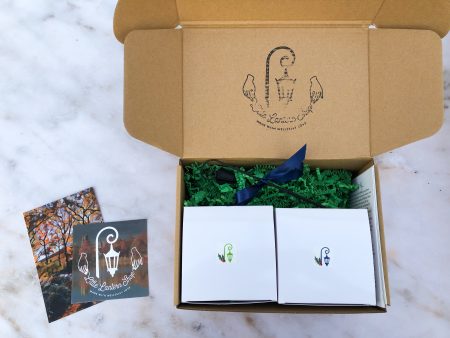One of the most wonderful and inspiring people I know is my godmother, Kristen. I’ve known her since I was 11; she’s watched me grow and go through the many stages in my religious journey. She has been there for me in all my stages of belief, and equally supportive in each. When I was 18, I asked her to be my godmother – not only because she has always been there for me, or so we can put a label on our unique relationship, but also because I so much admire the way she uses her ethical and faith principles to guide her life.
An example of this is a story she told me a few years ago. She was coming out of the supermarket and was approached by a man begging to trade a gift card for cash. He insisted that there was money on the gift card and that she could trust him, but she turned down his offer and walked away. As she sat in her car, getting ready to leave, she asked herself a question that would probably never occur to me: what if this man was Jesus, testing her? What if one day, she arrived at the pearly gates and he reminded her of that day, and asked her why she said no to something so small? She got out of the car, walked over to the man, and gave him the cash. She only used the card about a year later – and indeed, saw that he had told the truth.
That’s a story that comes back to me every time I’m walking through a city and pass someone asking for money. I’m not inclined to believe that Jesus comes down to us and tests our generosity, but I do think that there is huge spiritual value in sharing what you have. My family isn’t rich: thanks to medical bills and the cost of living in a college town, I have always been the least financially-privileged of my friends. The one who often didn’t buy presents for her friends’ birthdays; who had to borrow money to go out to dinner; the one for whom we had to change the restaurant we were going to so we could all afford it. But my family has enough. This summer, especially, I have more than enough; I’m working a full-time job to save money for my year abroad. Suddenly, I have a disposable income and money in my savings account. But even if I’m saving, how much do I really need?
There is a scene in Orange is the New Black in which Red, one of the inmates at the Litchfield Correctional Facility, says that “there are the people who eat the bread, and the people who serve the bread.” Even though my family may sometimes stretch what we have, I am still someone who eats the bread. Thanks to my friends’ generosity, I’ve been on a few fancy vacations. I live in a town with access to great public education, and am now on an almost-full scholarship at an excellent liberal arts college. Fifty years ago, my grandmother didn’t go to high school so she could work; now I go to the college that would be considered the best place for wealthy women to study in her time. In my middle age, I will probably not have to worry about money in the same way my parents have.
But we are an exception. We have benefited from my dad’s work and his career in academia, and the fact that we are white in a society built on ingrained white privilege. In spite of America’s talk about equal opportunity, our society is set up to disadvantage certain people, and to keep the wealthy where they are. I have worked hard to win grants and get into my college, but many of the factors that have led to my success – my hometown, my dad’s work, the family I was born into – are random pieces of fate that I did nothing to earn or deserve.
So when I am asked for money, I think of that, and I think of Kristen. Many religions’ principles encourage their adherents give – tikkun olam in Judaism, zakat in Islam, Jesus’ words on wealth and generosity, and many other creeds and traditions of which I know less. I don’t need everything that I have, and yet the more I have, the more I want: books, clothes, toys. You adjust your wants and expectations along with your income. But I don’t want to live that way anymore.
When I pass someone on the street asking for money to stay in a shelter for the night (the most common plea I hear from people in Leiden, where the cost is €2.50-5 a night), even if I suspect the money will go somewhere else, I try to give them what they ask for. It’s not my place to decide for someone else what they need, and that decision is between them and their beliefs. Jesus tells us to live generously. I can’t give up everything I have- or won’t, rather, even if I could (an ethical question for another day)- but I am doing my best to live up to that more in how I spend my money and my time.
I’m trying to grow, to better myself, and to live in a way that aligns more with my principles. It’s hard to get over selfishness. But what works best for me is reminding myself that we are all of equal value, and that who is asking whom for money is largely a random act of fate. I can’t decide for anyone else what is right for them, whether they should give, or to what. I don’t think we will be punished for not giving, or necessarily rewarded for doing so. But that doesn’t mean it’s not important. At least, for me.
“Live generously and graciously toward others, the way God lives toward you.” Matt. 5:48 (MSG)
—
If you’re looking into giving to charity, but not sure where to start, charitynavigator.com offers a great look at how different charities split, spend, and give their money. I am also very partial to kiva.org, a microfinance lending site that allows you to support farmers, students, and entrepreneurs in other areas of the world in their journey to financial independence. Your loans are always paid back, allowing you to use the same $25+ dollars to help different people, again and again.





